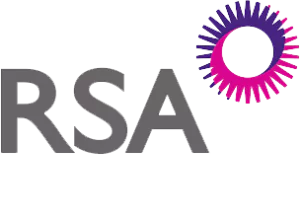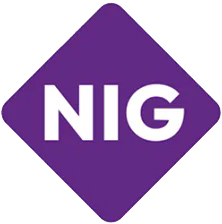Civil Engineering: Technological Integration Risks & the Insurance Cover You Need
Introduction
Civil engineering is in the middle of a technology shift. BIM-led design, digital twins, drones, IoT sensors, AI scheduling, automated plant, cloud-based…






Protection against claims arising from professional negligence, errors in design, advice, or project management. Essential for civil engineers, structural engineers, and consulting firms.
Comprehensive liability coverage for third-party injury, property damage, and defective work claims during construction and engineering projects.
Mandatory coverage protecting against employee injury claims and workplace accidents on construction sites and engineering projects.
Protection for construction projects, materials, and temporary works against damage, theft, and unforeseen circumstances during the construction phase.
Specialized coverage for design-build contracts, protecting against design defects, construction defects, and performance issues.
Essential protection for engineering firms handling sensitive project data, client information, and digital design files against cyber threats and data breaches.
Civil engineering projects face unique challenges and risks that require specialized insurance coverage. Understanding these risks is crucial for protecting your business and projects.
Civil engineering insurance must comply with various regulatory requirements and industry standards to ensure adequate protection and professional credibility.

Insure24's expertise in civil engineering insurance was invaluable when we faced a complex professional indemnity claim. Their support throughout the process was exceptional.
David Thompson Director, Thompson Civil Engineering LtdDon't leave your civil engineering business exposed to unnecessary risks.
Our specialist team will assess your venue's unique needs and provide a comprehensive insurance solution that protects your business, your customers, and your livelihood.
Call us now: 0330 127 2333
Or get an instant online quote at insure24.co.uk
What is civil engineering insurance and why do I need it?
Civil engineering insurance is specialized coverage designed for engineering professionals and construction companies involved in infrastructure projects. It protects against professional liability, design errors, construction defects, and third-party claims. It's essential for financial protection, professional credibility, and often required by clients and contracts.
How much professional indemnity insurance do civil engineers need?
Professional indemnity coverage typically ranges from £1 million to £10 million or more, depending on project size, contract requirements, and risk exposure. Large infrastructure projects may require higher limits. We assess your specific needs to recommend appropriate coverage levels.
Does civil engineering insurance cover design errors and omissions?
Yes, professional indemnity insurance covers design errors, omissions, and negligent advice that result in financial loss to clients. This includes structural design mistakes, calculation errors, specification problems, and failure to comply with building regulations or standards.
What is the difference between contract works and public liability insurance?
Contract works insurance covers damage to the construction project itself, materials, and temporary works. Public liability insurance covers third-party injury and property damage caused by your work. Both are typically required for construction projects but cover different risks.
Are subcontractors covered under my civil engineering insurance policy?
Coverage for subcontractors varies by policy type. Your public and employers liability may extend to some subcontractor activities, but they typically need their own insurance. Professional indemnity usually covers work you're legally responsible for, including some subcontractor errors, but specific terms vary.
How long does professional indemnity insurance last after project completion?
Professional indemnity insurance typically provides "claims made" coverage, meaning you're covered for claims made during the policy period. However, you may face liability for years after project completion. Run-off cover or continuous coverage is essential to protect against future claims on completed work.
What factors affect civil engineering insurance premiums?
Premiums are influenced by business size, project types, coverage limits, claims history, risk management procedures, geographical location, and specific engineering disciplines. Infrastructure projects and complex designs typically carry higher premiums than routine civil engineering work.
Do I need separate insurance for each construction project?
Not necessarily. Annual policies can cover multiple projects, but large or unusual projects may require project-specific insurance. Contract works insurance is often arranged per project, while professional indemnity and liability insurance typically provide annual coverage for all qualifying work.
Is cyber insurance necessary for civil engineering firms?
Yes, cyber insurance is increasingly important for engineering firms handling sensitive project data, client information, and digital design files. Coverage includes data breach response, cyber extortion, business interruption, and regulatory investigation costs. Many clients now require cyber insurance for contractors.
What should I do if I receive a professional indemnity claim?
Contact your insurance broker immediately upon receiving any claim or potential claim notification. Don't admit liability or negotiate directly with claimants. Your insurer will appoint specialist legal representation and claims handlers experienced in construction and engineering disputes.
Can I get insurance for international civil engineering projects?
Yes, coverage can be extended for international projects, though terms and availability vary by location. Some regions require local insurance arrangements. We work with insurers who specialize in international construction and engineering projects to provide appropriate coverage.
How does design and build insurance differ from traditional coverage?
Design and build insurance provides integrated coverage for both design and construction phases, including fitness for purpose liability. Traditional coverage may separate design professional indemnity from construction liability. Design and build contracts often require specialized insurance arrangements.
What happens if my civil engineering insurance claim is denied?
If a claim is denied, you can appeal the decision through your insurer's complaints procedure. If unsuccessful, you may escalate to the Financial Ombudsman Service. It's important to understand policy terms and ensure full disclosure when purchasing insurance to avoid coverage disputes.
Do I need insurance for consulting work versus construction projects?
Both require insurance but with different emphasis. Consulting work primarily needs professional indemnity insurance for advice and design liability. Construction projects require broader coverage including public liability, employers liability, and contract works insurance. Many firms need comprehensive coverage for both activities.
How often should I review my civil engineering insurance coverage?
Review coverage annually at renewal and whenever your business changes significantly. Consider project types, contract requirements, staff changes, new services, and claims experience. Regular reviews ensure coverage remains adequate and competitive as your business evolves.
What documentation do I need to apply for civil engineering insurance?
Typically required documents include business registration details, professional qualifications, project portfolios, financial statements, claims history, health and safety policies, and details of current contracts. Specific requirements vary by insurer and coverage type.
What types of civil engineering projects require specialized insurance coverage?
Specialized insurance is required for infrastructure projects including bridges, tunnels, highways, airports, water treatment facilities, flood defenses, railway systems, marine structures, and urban development projects. Each project type has unique risks requiring tailored coverage for ground conditions, environmental factors, and technical complexities.
How much does civil engineering insurance cost in the UK?
Civil engineering insurance costs vary significantly based on business size, project types, and coverage requirements. Professional indemnity typically costs £1,500-£15,000 annually, public liability £300-£2,000, and project-specific coverage 0.5-2% of contract value. We provide competitive quotes tailored to your specific needs and risk profile.
Do civil engineers need insurance for structural calculations and design work?
Yes, professional indemnity insurance is essential for structural calculations and design work. Coverage protects against claims arising from calculation errors, design defects, specification mistakes, and failure to meet building standards. Minimum coverage of £1-2 million is typically required, with higher limits for complex structures.
What is covered under civil engineering public liability insurance?
Public liability covers third-party bodily injury, property damage, and financial loss caused by your civil engineering activities. This includes site accidents, damage to adjacent properties, utility strikes, traffic disruption, and pollution incidents. Coverage typically ranges from £1-10 million depending on project requirements.
Is insurance required for geotechnical engineering and ground investigation work?
Yes, geotechnical engineers need specialized professional indemnity coverage for ground investigation, soil analysis, foundation design, and slope stability assessments. Coverage protects against claims from inadequate site investigation, incorrect ground conditions assessment, and foundation failure recommendations.
What insurance do I need for highway and transportation engineering projects?
Highway projects require comprehensive coverage including professional indemnity for design work, public liability for traffic management, contract works for construction phases, and specialized coverage for traffic control systems. Additional protection may be needed for environmental impact and noise pollution claims.
How does insurance work for joint venture civil engineering projects?
Joint venture projects require careful insurance coordination between partners. Coverage options include joint policies covering all parties, separate policies with cross-liability protection, or lead contractor arrangements. Professional indemnity should cover each party's design responsibilities with appropriate liability splits.
Do I need separate insurance for environmental engineering and remediation work?
Environmental engineering often requires specialized pollution liability insurance in addition to standard coverage. This protects against contamination claims, groundwater pollution, air quality issues, and remediation cost overruns. Coverage is essential for brownfield development and contaminated land projects.
What insurance coverage is needed for bridge and structural engineering?
Bridge engineering requires high-limit professional indemnity (often £5-10 million), structural warranty insurance, and specialized coverage for load calculations, fatigue analysis, and seismic design. Additional protection may be needed for inspection and assessment services on existing structures.
Is cyber insurance mandatory for civil engineering firms handling BIM and digital design?
While not legally mandatory, cyber insurance is increasingly required by clients for firms using BIM, CAD systems, and cloud-based collaboration tools. Coverage protects against data breaches, ransomware attacks, IP theft, and business interruption from cyber incidents affecting digital design workflows.
What insurance do consulting civil engineers need compared to contractors?
Consulting engineers primarily need professional indemnity insurance (£1-10 million) with extended coverage for advice, design, and project management. Contractors require broader coverage including public liability, employers liability, contract works, and plant insurance. Many firms need both types of coverage.
How long should I maintain professional indemnity insurance after retirement?
Run-off coverage should be maintained for 6-15 years after retirement or business closure, depending on project types and potential liability periods. Infrastructure projects may have longer liability tails. Some policies offer automatic run-off periods, while others require separate arrangements.
What insurance is required for water engineering and flood defense projects?
Water engineering projects require specialized coverage for hydraulic modeling, flood risk assessment, drainage design, and environmental impact. Coverage should include protection against flood damage claims, environmental pollution, and failure of flood defense systems. Higher liability limits are typically required.
Do civil engineering firms need insurance for health and safety consultancy?
Yes, CDM advisor and health and safety consultancy services require professional indemnity coverage with specific extensions for regulatory compliance advice. Coverage protects against claims from inadequate risk assessments, safety plan deficiencies, and regulatory investigation costs.
What insurance coverage applies to civil engineering software and modeling errors?
Professional indemnity insurance typically covers errors in computer modeling, software calculations, and CAD design work. However, policies may exclude certain software-related risks. Specialized technology errors and omissions coverage may be needed for firms heavily reliant on proprietary software and modeling systems.
Is insurance available for civil engineering work in high-risk locations?
Yes, coverage is available for work in challenging environments including coastal areas, earthquake zones, flood plains, and contaminated sites. Premiums reflect increased risks, and additional coverage may be required for environmental hazards, extreme weather, and specialized construction techniques.
What happens to insurance coverage when civil engineering projects are delayed?
Project delays can affect insurance coverage periods and costs. Contract works insurance may need extension, professional indemnity coverage continues for design liability, and additional premium may be charged for extended coverage periods. Early notification to insurers is essential for coverage continuity.
Do I need insurance for civil engineering peer reviews and third-party checks?
Yes, peer review and checking services require professional indemnity coverage as you assume liability for design verification and approval. Coverage should include protection against errors in review processes, inadequate checking procedures, and failure to identify design defects in others' work.
What insurance is needed for civil engineering expert witness services?
Expert witness work requires professional indemnity coverage with specific extensions for court proceedings and dispute resolution services. Coverage protects against claims from incorrect expert opinions, inadequate investigation, and professional negligence in legal proceedings. Higher limits may be required for high-value disputes.
How does insurance work for civil engineering partnerships and limited companies?
Insurance arrangements vary by business structure. Partnerships may need individual and joint coverage, while limited companies typically purchase corporate policies. Professional indemnity should cover all directors and employees, with run-off protection for departing partners. Legal structure affects liability exposure and insurance requirements.
Civil engineering is in the middle of a technology shift. BIM-led design, digital twins, drones, IoT sensors, AI scheduling, automated plant, cloud-based…
Civil engineering firms run on data. Site surveys, BIM models, drone footage, geotechnical reports, tender pricing, subcontractor de…
Smart infrastructure is changing civil engineering fast: sensors embedded in bridges, IoT-enabled flood defences, smart highways, conn…
Civil engineering is changing fast. Digital design, drones, sensors, robotics, AI planning tools, modular methods, and low‑carbon materials are now normal on many projec…
Civil engineering sits at the intersection of design decisions, site realities, and public safety. A small error in calculations, specification, or supervision can c…
Civil engineering projects live or die by materials. A single batch of defective concrete, a substandard steel delivery, or a failed waterproofing membrane can trigger delays, …
Civil engineering is moving fast: modular and offsite manufacturing, advanced ground engineering,…
Civil engineering is moving fast, and 3D printed infrastructure is one of the bigges…
Civil engineering is changing fast. Alongside “traditional” projects (roads, bridges, drainage, foundations), firms are now delivering work that blends constru…
Civil engineering is moving from a “build–use–replace” model to a…
Civil engineering projects are under more environmental scrutiny than ever. Whether you’re building roads, bridges, drainage systems, utilities, groundworks, or remediation…
Waste processing plants are high-risk environments: heavy plant, moving vehicles, combustible materials, dust, fire load, pollution exposure, and strict regulatio…
Recycling facility construction projects sit at the sharp end of civil engineering risk. You’ve got heavy plant, complex groundworks, tight programmes, multiple contr…
Civil engineering, waste management, and environmental engineering sit right at the s…
Civil engineering projects can transform communities — but they can also disturb land, waterways, habitats, and contaminated ground. If something goes wrong, t…
Civil engineering sites are high-value, high-risk environments. You’ve got expensive plant and tools, materials stored in the open, multiple contractors coming and go…
Surface mining operations represent some of the most complex and high-risk civil engineering projects in the construction and extraction industries. From open-pit coal mines to q…
Civil engineering projects represent some of the most complex and high-value construction undertakings in the UK. From infrastructure development to large-scale commercial build…
The mining and extraction industry represents one of the most challenging sectors for civil engineering projects. From open-pit mines to underground tunnels, processing f…
Climate change is reshaping the landscape of civil engineering, bringing unprecedented challenges to infrastructure projects across the United Kingdom and bey…
Offshore construction projects represent some of the most challenging and high-risk endeavors in civil engineering. From oil and gas platforms to wind farms and subsea infrastruct…
Marine structures represent some of the most challenging and expensive civil engineering projects undertaken in the modern construction industry. From offshore wind farms and o…
Coastal defense and sea wall construction projects represent some of the most challenging and critical infrastructure work in civil engineering. As climate…
Coastal and marine engineering projects represent some of the most complex and high-risk undertakings in the civil engineering sector. From constructing sea defences and offsho…
Civil engineering encompasses a vast array of specialized domains, each presenting unique challenges, risks, and insurance requirements. From structural eng…
Civil engineering projects involve significant environmental risks that can result in costly contamination incidents, regulatory penalties, and long-term liability. Env…
Civil engineering projects rely heavily on sophisticated, expensive equipment to complete complex tasks on time and within budget. From excavators and bulldozers to…
Civil engineering process plants represent some of the most complex and high-value industrial facilities in the modern economy. From chemical processing facilities…
Civil engineering projects in hazardous environments present unique challenges that demand specialized insurance coverage. From contaminated land remediation to nuclear facility construct…
The construction of chemical and industrial plants represents one of the most complex and high-risk sectors within civil engineering. From petrochemical refineries …
The global transition to renewable energy has created unprecedented opportunities and challenges for civil engineering firms specializing in green energy infrastructure. Fr…
The offshore wind energy sector represents one of the most ambitious and rapidly expanding areas of renewable energy development in the UK and globally. As the i…
The renewable energy sector has experienced unprecedented growth in recent years, with solar installations becoming increasingly common across commercial, industrial, a…
The renewable energy sector is experiencing unprecedented growth, with wind farms becoming a cornerstone of the UK's commitment to sustainable power generation. However, constructing t…
The renewable energy sector represents one of the fastest-growing areas of civil engineering, with wind farms, solar installations, hydroelectric facilities, and biomass plants trans…
The civil engineering, industrial, and energy sectors form the backbone of modern infrastructure and economic development. From constructing bridges and power plants to manufac…
The civil engineering sector is undergoing a profound digital transformation. From Building Information Modelling (BIM) and drone surveying to AI-powered proje…
Civil engineering laboratories represent some of the most specialized and high-value commercial spaces in the modern business landscape. These facilities house …
Civil engineering research facilities represent some of the most complex and high-value construction projects in the modern built environment. These specialized s…
University campus expansion projects represent some of the most complex civil engineering undertakings in the construction sector. These developments combine educati…
Civil engineering educational institutions face unique insurance challenges that set them apart from traditional academic establishments. With specialized laboratories,…
As urban centres worldwide embrace digital transformation, smart cities are rapidly becoming the blueprint for modern urban development. These technologically advanced enviro…
The construction industry is experiencing a fundamental shift toward sustainability, with civil engineering projects increasingly incorporating green building practices, re…
Civil engineering projects commissioned by government bodies represent some of the most complex and high-stakes construction undertakings in the UK. From major infrastructure dev…
Civil engineering projects involving public facilities represent some of the most complex and high-stakes construction endeavors undertaken in the modern…
Municipal buildings form the backbone of local government infrastructure, serving communities as town halls, civic centres, libraries, community centres, and administrative o…
Urban development and public infrastructure projects represent some of the most complex and high-value undertakings in the construction sector. From roa…
Airport and aerospace infrastructure projects represent some of the most complex and high-value civil engineering undertakings in the construction industry.…
Civil engineering projects shape our infrastructure and communities, but they also carry significant environmental risks. From soil contamina…
Signal and communication systems form the critical nervous system of modern civil engineering infrastructure. From railway signalling networks and tra…
The civil engineering sector has undergone a digital transformation in recent years, with navigation systems and positioning technology becoming fundamental to proj…
Terminal development projects represent some of the most complex and high-value civil engineering undertakings in the modern construction landscape. Whether buil…
Runway construction represents one of the most complex and high-stakes civil engineering projects in the infrastructure s…
Traffic management during construction projects is a critical component of civil engineering that ensures the safety of workers, motorists, and pedestrians while maintaining efficient traffic flow…
Civil engineering projects represent some of the most complex and high-value construction undertakings in the UK, from motorway infrastr…
Road construction projects form the backbone of modern infrastructure, connecting communities and enabling economic growth across the United Kingdom. Whether build…
Highway and road development projects represent some of the most complex and high-value undertakings in the civil engineering sector. From major motorway expansions…
Cross-border infrastructure projects represent some of the most ambitious and complex undertakings in modern civil engineering. From transnational rail…
Civil engineering projects involving underground and elevated track systems represent some of the most complex and high-risk construction undertakings in the infrastructu…
High-speed rail projects represent some of the most ambitious and complex civil engineering undertakings in modern infrastructure development. With construction costs often…
Marine and coastal bridge construction represents one of the most challenging and risk-intensive sectors within civil en…
Civil engineering projects represent some of the most significant investments in modern infrastructure, from bridges and tunnels to commercial buildings and water …
Civil engineering projects represent some of the most significant investments in modern infrastructure, from bridges and roads to dams and drainage s…
Railway construction represents one of the most complex and high-value sectors within civil engineering. From high-speed rail networks to …
Civil engineering transportation infrastructure projects represent some of the most complex and high-value construction undertakings in t…
Civil engineering projects shape our infrastructure, from roads and bridges to water treatment facilities and commercial developments. However, these projects carry…
Water infrastructure projects represent some of the most critical and complex civil engineering undertakings in modern society. From water treatment plants and distribution n…
Civil engineering projects involving dams and hydroelectric facilities represent some of the most complex and high-value infrastructure developments in the modern world. Th…
Civil engineering projects represent some of the most complex and high-stakes undertakings in the construction industry. From bridges and tunnels t…
Historical restoration projects represent some of the most challenging and rewarding work in civil engineering. Whether restoring a Victorian railway sta…
Suspension bridges represent some of the most iconic and technically complex structures in civil engineering. From the Golden Gate Bridge to the Akashi Kaikyō Bridge, t…
Bridge engineering represents one of the most complex and high-stakes disciplines within civil engineering. From pedestrian footbridges to massive suspension st…
Tunnel construction represents one of the most complex and risk-intensive undertakings in civil engineering. Whether boring through mountain ranges for rural transportation…
Civil engineering projects demand sophisticated, high-value equipment that forms the backbone of infrastructure development across the UK. From excavators and bul…
Civil engineering projects face numerous challenges, but few are as unpredictable and potentially devastating as geological hazards. From landslides and subsidence to earthq…
Underground engineering projects represent some of the most complex and high-risk endeavours in the civil engineering sector. From tunnel construction and deep excavations to un…
Civil engin…
Civil engineering projects involving …
A Definitive Guide to Risk Management and Financial Protection for Tunnel Construction Professionals
Civil engineering is a …
As the United…
A Definitive Guide to Risk Management and Insurance Strategies for Civil Engineering Projects
Civil engineering road and highway…
Bridge construction represents one of the m…
Navigating Risk Management for Modern Engineering Teams
The civ…
Launching a civil engineeri…
The civil engineering sector has undergone a dramatic di…
In an increasingly complex and interconnected wo…
Civil engineering represents the back…
In the complex and high-stakes world of civ…
In the high-stakes world of civil en…
A Definitive Guide to Understanding, Managing, and Mitigating Risks in Construction Projects
Navigating Challenges, Minimizing Uncertainties, and Ensuring Project Success
In the complex and high…
A Definitive Guide to Risk Management in Complex Construction Ventures
Civil engineering represents …
In the complex world of civil enginee…
Civil engineering projects sh…
Civil engineering is a profession built on precision, e…